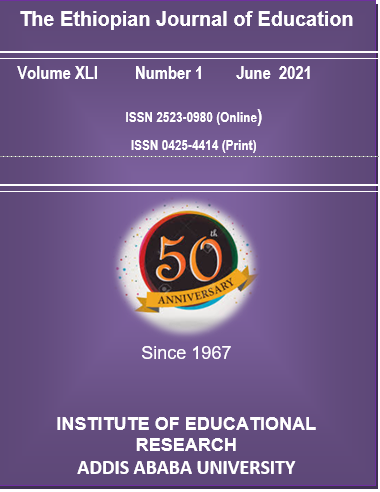A Retrospective Analysis of Student Ethnic Diversity Management in the Ethiopian Higher Education System and Implications
Abstract
The main purpose of this study is to examine the trends of treating socio-cultural differences of students in the Ethiopian education systems retrospectively and find evidence-based explanation with regard to the level of effectiveness of the current multicultural management approach in addressing societal diversity needs of the 21st century Ethiopia. In the study, qualitative data collected from ranges of policy-strategy documents and reports of intergroup relation scenarios were used to explicate student intergroup relations at higher education and developmental changes of student identity quest towards promoting pressing justice and rights issues in societies. The findings showed that during the Imperial and the Dergue regimes, assimilation and integration strategies were employed respectively to bring about social cohesion. Nevertheless, these approaches did not bring about the envisaged peace and tranquillity among student population; rather these were followed by the overthrow of the governments. The present EPRDF led government, with the assumption to resolve this long-standing diversity issues, installed multiculturalism with the motto: ‘unity within diversity’. However, ethnic, linguistic and religious based mistrust, stereotypes and hostilities persisted at university environments. The multicultural approach was neither found to be effective in fully addressing the multifaceted ethnic, linguistic and religious diversity issues which are equally vital in the society nor in bringing about lasting peace. Now the campus confined student flashpoints have eventually transformed to social movement for justice and rights in the society. The study findings suggest that unless the root cause of student mistrust, stereotype and hostility which manifest at educational institutions is fully addressed at societal progressive change in educational policy alone would hardly establish cohesive society. The study implies that in order to mitigate identity-based hostility at educational institutions as well as its development into identity oriented social movement, a transformational diversity management policy that goes beyond the affirmative multicultural approach, in which equality in all forms are fostered and both differences and commonalities are equally valued and celebrated, should be provisioned and be critically implemented at national level with the motto: “I am, because we are!”.
